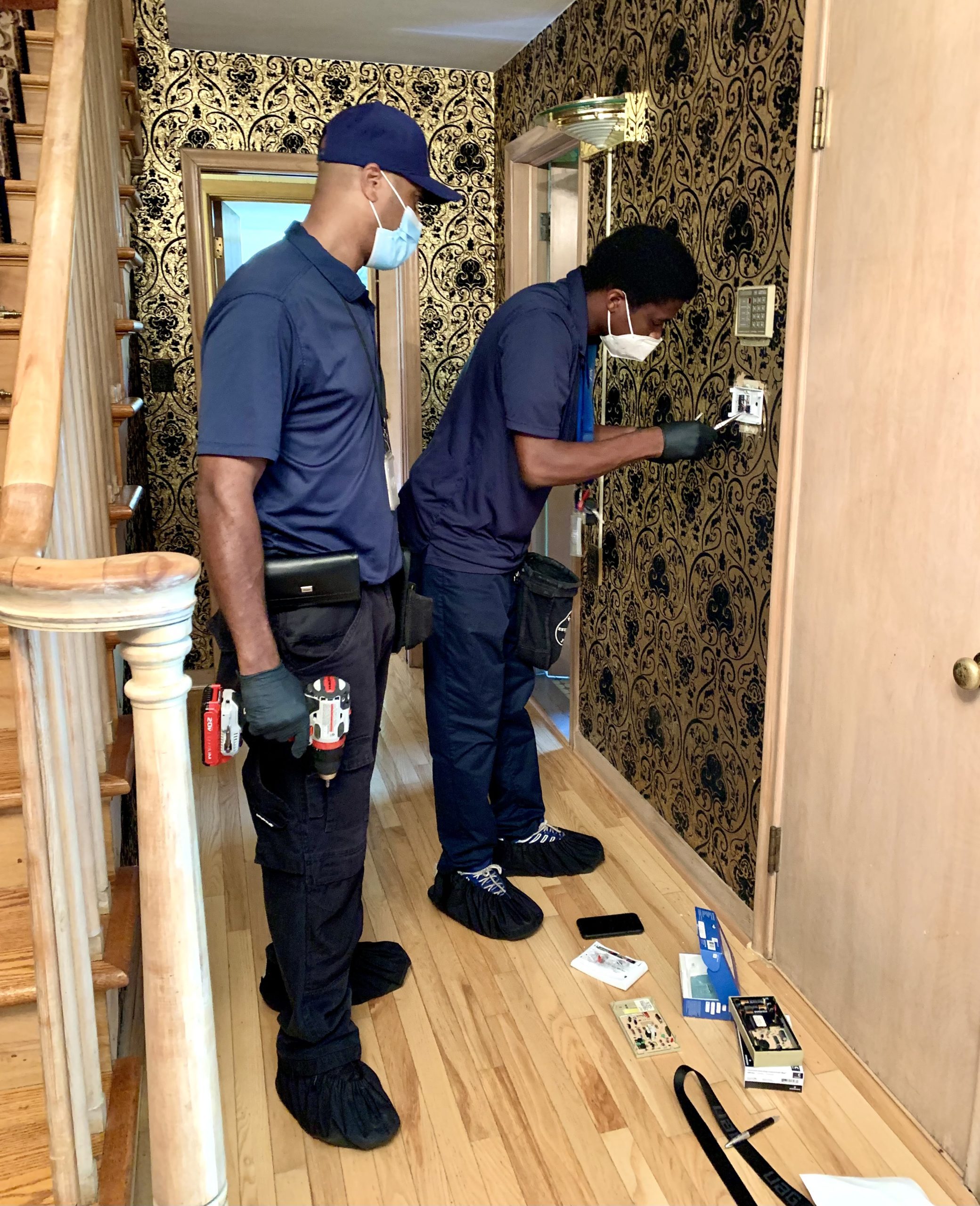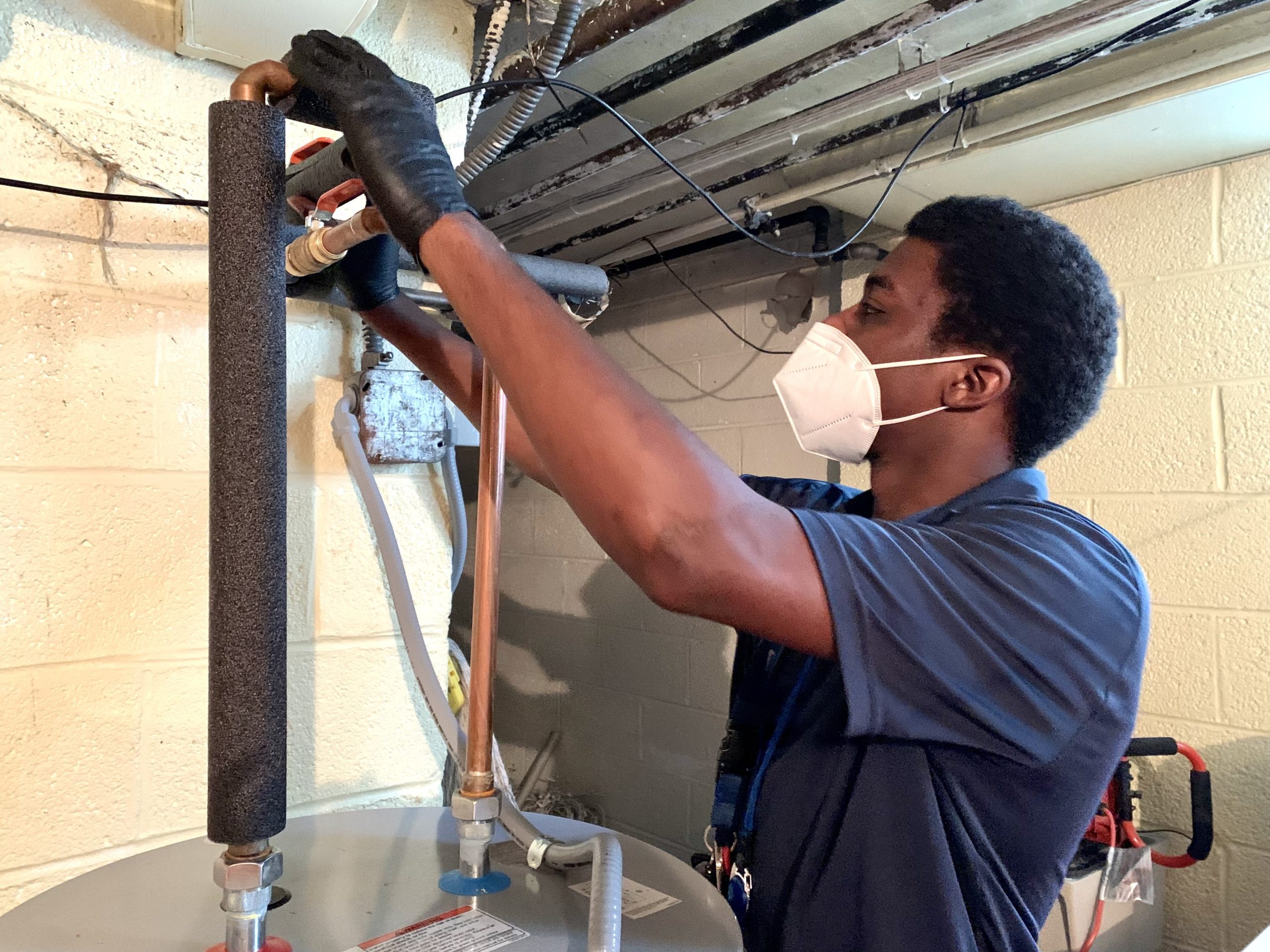How Walker-Miller Energy Services is Changing the Future of Energy Efficiency by Prioritizing Diversity, Equity, and Inclusion
October 8, 2021
Sustainability is more than recycling and composting food waste. According to Malcolm Miller, director of business development at Walker-Miller Energy Services, energy efficiency is the foundation of sustainability.
“If your home isn’t functioning as a whole house system, there is no point in you getting solar panels on it. If you don’t even understand the importance of insulation and weatherization, you can’t really do much with solar. The way that sustainability, or renewables, for instance, are intended to work will not, without energy efficiency,” Miller said.
Unfortunately, Miller said, many Detroiters, especially low-income residents, are not aware of the different ways they can implement energy efficiency in their homes. But that is what Walker-Miller is working to change.
About Walker-Miller Energy Services
Walker-Miller Energy Services is one of two large Black-owned businesses in Detroit and one of the pioneering energy efficiency businesses in the region. It was founded in 2000 by Carla Walker-Miller, who decided to start her own business after her advocacy efforts for diversity in the workplace were not taken seriously. Walker-Miller began as an electrical equipment business. It handled sourcing and procurement for companies like DTE and Consumers Energy. After a government mandate began regulating energy efficiency for regulated utilities, the company identified an opportunity in the space and began contracting that work.
Around 2011-2012, Walker-Miller’s focus shifted to performing energy audits and assessments, installations, and more to homeowners in Detroit and commercial businesses like Habitat for Humanity. Miller said their all-Detroiter staff was very boots on the ground in the transition, which makes their firm unique and is very helpful to the community it serves.
“We have staff that started out in the field, who have an intimate understanding of residential energy efficiency and why it’s so important, especially for Black people, especially for urban communities. You’ll hear people in our community refer to it as the ‘energy burden,’” Miller said, “It acknowledges the fact that you have people in Detroit, Chicago, in major urban hubs that every day make the decision between utilities and food, utilities and clothes, utilities and daycare. Just decisions that utility companies and firms like ours have the privilege of being able to help them navigate now.”
As Walker-Miller continued to grow, it began to lead conversations about the energy burden and diversity, equity, and inclusion in the industry. It transitioned into more of an implementation role than a contractor.
Walker-Miller Energy Services’ Approach to Equity in the Energy Efficiency Industry

In 2016, DTE offered Walker-Miller Energy Services an opportunity to work with several of its programs, including single-family residences and income-qualified programs.
“We were able to take those things that we learned as a contractor, as Detroiters, and as Black people and work with this huge budget to help our people navigate the energy burden. To help them receive equipment replacements, weatherization, all types of resources that you think they would know exist, but they don’t,” Miller said.
Miller specifically referenced the services included in DTE bills and are listed under “energy optimization fee” on an itemized bill. He shared that 80% of the dollars that have been spent on those utility services have been in moderate-to-high income homes and neighborhoods. That’s why Walker-Miller prioritizes working with single-family residences and low-income households through this partnership with DTE.
“The good thing is that utilities like DTE really have boosted their commitments to creating new efforts, new initiatives that focus strictly on those communities and those families that really need it the most,” Miller said.
Outside of working with utility companies to make an equitable impact in the energy efficiency world, Walker-Miller also approaches energy waste reduction in three ways: recruiting an inclusive workforce, engaging diverse customers in all their programs (not just income-qualified ones), and creating a network of local and diverse contractors.
Approach #1: Recruiting an Inclusive Workforce
When it comes to Walker-Miller’s first approach, Miller shared this is a direct reflection on how the company started with an almost all-Detroit staff.
“All who have, once in their life, seen their parents navigate this energy burden or learn about what it is firsthand. That kind of diversity in thought, you can’t buy it. You can’t fake it. When it’s time to sit down at the table and design programs and initiatives that are truly equitable and inclusive, it’s key that you have people from different cultures, people from different walks of life, women,” Miller said.
The energy efficiency industry is a white male-dominated industry. Walker-Miller Energy Services strives to change that narrative, and one way they do it is by making sure their team is diverse. Miller said he is one of three men on a leadership team of about 10 people.
“We have people who are Indian, Hispanic, Black, white, female, male, young, old—we are one of the most diverse firms in the space, and we pride ourselves in that. It is an internal goal, not just with the utilities,” Miller said.
Another way Walker-Miller works to challenge the narrative is by investing in programs geared towards increasing diversity in the industry. In 2019, United Way of Southeastern Michigan invited the company to pilot a six-week Building Performance Institute training program. Walker-Miller targeted Detroiters who were low-income, women, returning citizens, or at-risk youth and worked to get them employed in the energy industry.
And, according to Miller, Carla Walker-Miller was on a mission to do more than train them. She wanted to make sure there were actual placements available for them after training and that any barriers in their way to completing the program were removed.
“Carla was on a mission. We fully committed to removing every barrier for these people, from daycare to Uber rides and bus passes when they needed to get to class. Our goal was not to make money—it was to put together documentation behind what are the existing barriers for our people—Detroiters—and for the people that need these jobs the most,” Miller said.
After the training, Walker-Miller hired five participants, who Miller said are now some of their best workers.
Approach #2: Engaging Diverse Customers in All Programs
Being knowledgeable of and providing quality customer service to all customers is important in any industry, but particularly so in the energy industry. Understanding the plights of customers can help providers tailor energy recommendations to individual homes and budgets and ultimately keep families warm and safe.

Miller shared Walker-Miller, because of how boots on the ground its staff is, provides this level of customer service. Its staff goes into homes, takes note of the conditions, identifies health and safety hazards, and helps families learn about services that can help them. And many of these issues they note during home inspections are things that utility companies generally do not know or understand.
“That is one thing we take pride in and what we really see as a competitive advantage. We have people who are in leadership positions, who—when the company started in this space, there were 12 of us—everybody was in the field,” Miller said.
Approach #3: Creating a Network of Local and Diverse Contractors
With all the competitive advantages Miller shared Walker-Miller has, including being one of the few diverse companies in the industry, he also stressed that it doesn’t benefit the industry or communities like Detroit for the company to be the most diverse.
“We pride ourselves on that, but we fully acknowledge that we have a commitment, an obligation to make sure what is one of the fastest-growing industries is inclusive and has dozens of other firms owned and led by Black women—women in general,” Miller said.
Miller shared how Walker-Miller has been working on several initiatives that help their clients improve what their contractor base and diverse spend, or the amount of money flowing through contractors and communities, look like. One initiative is called the Market Development Initiative. With that initiative, Walker-Miller Energy Services works to make sure companies spend as many dollars as possible with diverse vendors and companies. This includes non-energy efficiency-related items, such as food and real estate, because Black and brown businesses are in almost every industry.
DTE in Detroit and Ameren and ComEd in Illinois have also given Walker-Miller control to help them design initiatives to diversify their contractor base. Initiatives that Miller said not only remove barriers such as lack of diversity certifications or tax history, but that also “allow us as a diverse firm, a legitimate Tier 1 supplier, to come to them and say ‘we’ve vetted these companies, they’re capable. If equity is important to you, here you go.’”
Diversity, Equity, and Inclusion and The Future of Energy
 When people think about energy efficiency, Miller said they commonly want to hear the “sexy references” to technology, like EV, electrification, and renewables. But he said that’s not what the conversation should be about when it relates to Black people, women, and Detroiters.
When people think about energy efficiency, Miller said they commonly want to hear the “sexy references” to technology, like EV, electrification, and renewables. But he said that’s not what the conversation should be about when it relates to Black people, women, and Detroiters.
“As it relates to us and our future in energy efficiency, it’s largely going to be based around making sure that we’re not left out of it—to make sure that Black people, women, people in urban areas, are not left out of receiving the benefits that are offered by programs like that,” Miller said.
Learn more about Walker-Miller Energy Services, a company that believes in “Empowering People and Enriching Communities,” at wmenergy.com.
